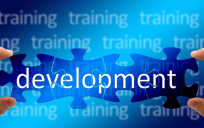Military life has a unique ecosystem where spouses face distinct challenges that shape their career paths. These challenges are often misunderstood outside of the military community. Frequent relocations, overseas assignments, and the uncertainty of deployment schedules can lead to gaps in employment or periods of underemployment for many military spouses. Recognizing and effectively communicating the resilience, adaptability, and diverse skill sets acquired through these experiences is crucial for career advancement. This story aims to shed light on how translating military spouse resumes can bridge the gap in understanding.

Embracing the Journey
A military spouse has a rich tapestry of professional experiences. These experiences may range from volunteering in community organizations abroad to holding part-time positions that did not fully utilize their advanced degree. Many in this situation have resumes that do not follow a traditional trajectory, revealing a career marked by geographical moves every few years in support of their partner’s military duties. This pattern often leads to underemployment or employment gaps. These gaps pose a challenge each time the military spouse seeks to re-enter the workforce.
The Power of Perspective
What many military spouses have come to realize is that their unconventional career paths are not a series of disjointed experiences but a cohesive narrative of resilience, flexibility, and unparalleled life skills. The key lies in translating these experiences for civilian employers, who may not immediately grasp the full value of such a background.
Crafting the Narrative
To bridge this understanding, military spouses have learned to craft a compelling resume narrative that highlights transferable skills and adaptability. For example, organizing community fundraisers overseas showcases project management skills, cross-cultural communication, and the ability to work with limited resources. These are qualities highly prized in many sectors, from non-profit management to corporate leadership.
Military spouses also address employment gaps directly in their cover letter, framing employment gaps as times of valuable personal and professional development, including continuing education, volunteer work, and skills enhancement. By doing so, military spouses turn potential vulnerabilities into testimonies of a proactive and resilient character.
Networking and Support Systems
Recognizing the importance of networking, military spouse support groups and career development programs is key. These networks provide resources, mentorship and sometimes direct connections to employment opportunities that are sympathetic to, or even seek out, the unique talents of military spouses. Organizations such as the Military Spouse Employment Partnership (MSEP) offer platforms for spouses to showcase their skills to potential employers who understand and value their unique experiences.
The Employers’ Role
There’s a growing recognition among employers of the value military spouses bring to the table. Innovative companies are beginning to see beyond the resume gaps. This allows employers to appreciate the soft skills like adaptability, crisis management, and the ability to thrive in diverse environments where military spouses excel. Creating more inclusive hiring practices and offering flexible work arrangements are just the start in accommodating the talents of this dynamic workforce segment.
A Path Forward
For countless military spouses, the journey is ongoing. It’s a path marked by resilience, adaptability, and the continuous pursuit of professional fulfillment. Military spouses can navigate the challenges of the job market by effectively translating their resumes, leveraging the strength of their experiences and enriching the job market with their unique perspectives and skills.
The story of military spouses and their career paths can be one of untapped potential. Gaps in a resume can be transformed into bridges that connect diverse experiences to new opportunities. For employers, it’s an invitation to look beyond the conventional. By doing so they would recognize the extraordinary value that lies within the unique journey of military spouses.
Marquiesha Gillispie, BSBA, MPA, is the Director of the Federal Military Family Network within the Interagency Veterans Advisory Council, a role supported by the White House’s Joining Forces Initiative. A military spouse and advocate for the military-connected community, she is deeply committed to serving those who have served. Her career trajectory showcases a profound commitment to enhancing the lives of the underrepresented and underserved. This includes a dedication to ensuring that small businesses have fair access to federal procurement opportunities, as Senior Acquisition Professional with the U.S. General Services Administration and previously with the U.S. Small Business Administration.





Leave a Reply
You must be logged in to post a comment.